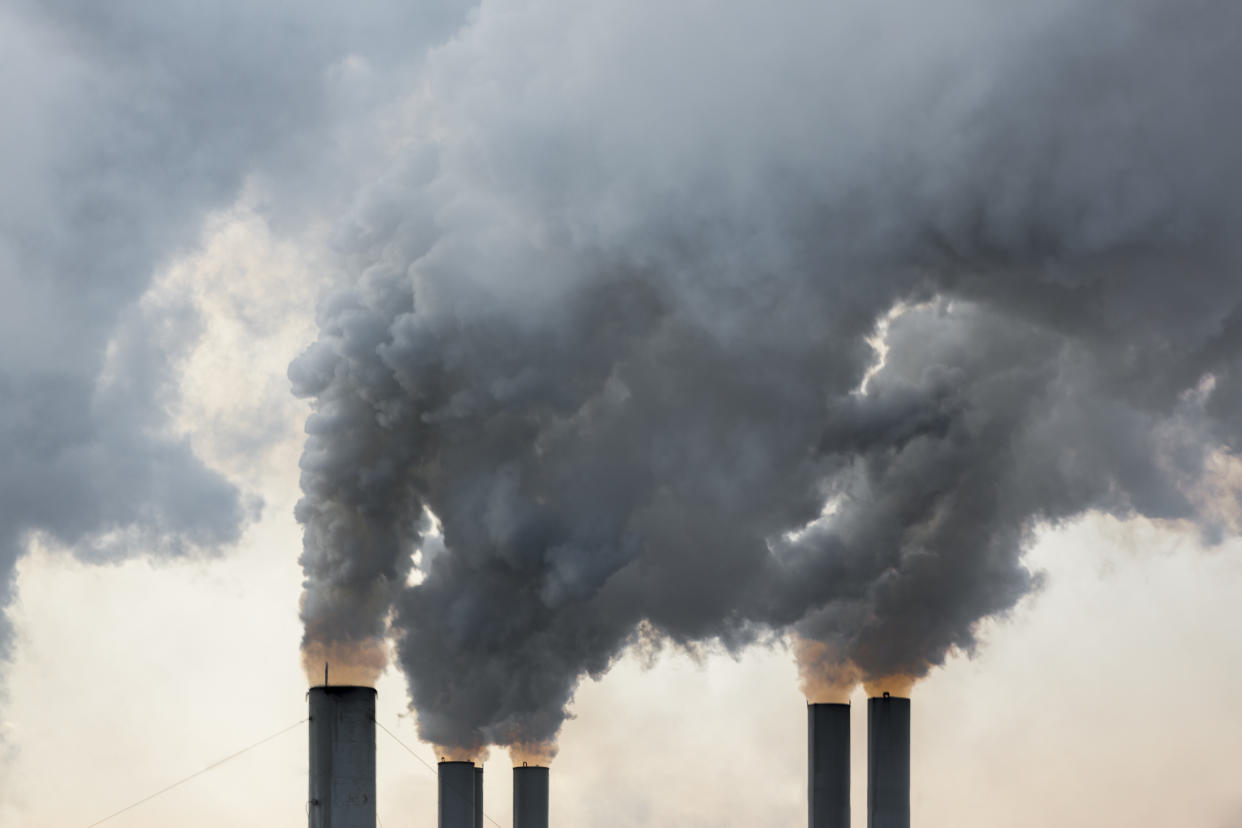Carbon levels in the atmosphere ‘hit new record high’, WMO warns

Levels of greenhouse gas levels in our atmosphere are soaring, hitting yet another record high this year, the World Meteorological Organisation has warned.
Carbon dioxide levels have soared to 407.8 parts per million in 2018, up from 405.5 parts per million (ppm) in 2017 - comparable to levels last seen millions of years ago when sea levels were dozens of feet higher.
Before the industrial revolution made burning fossil fuels widespread, the level stood at 280 parts per million.
The rise in carbon dioxide and other greenhouse gases are set to drive increasingly severe impacts of climate change, the WMO said.
READ MORE
Binary Earth-sized planets possible around distant stars
Insects could die out in ‘worst exctinction since the dinosaurs’
NASA satellite captures incredible beauty of UK seen from space
Why Iran’s nuclear escalation goes unchallenged
Concentrations of other climate-warming greenhouse gases methane and nitrous oxide also surged by higher amounts in 2018 than in the past decade, the observations from the global atmosphere watch network show.
WMO secretary-general Petteri Taalas said: "There is no sign of a slowdown, let alone a decline, in greenhouse gases concentration in the atmosphere despite all the commitments under the Paris Agreement on Climate Change.
"We need to translate the commitments into action and increase the level of ambition for the sake of the future welfare of the mankind," he said.
He said the last time Earth experienced comparable concentrations of carbon dioxide in the atmosphere was three to five million years ago, when temperatures were 2C to 3C warmer and sea levels were 10-20 metres higher than today.
Human activity is creating greenhouse gas emissions, which are driving up the concentrations of the gases such as carbon dioxide in the atmosphere, where they have a warming effect on the Earth's climate.
This global warming is driving impacts such as melting glaciers and sea level rise, more extreme droughts, heatwaves and storms and posing a threat to food security, water supplies and wildlife.
But the WMO warns that even with the pledges made by countries under the international Paris deal, global emissions are not estimated to peak by 2030, let alone by the 2020 date that scientists have said is necessary to curb dangerous climate change.
Preliminary findings for 2018 suggest greenhouse gas emissions continued to rise last year.

